The Road Back
Cast & Crew
James Whale
John King
Richard Cromwell
Slim Summerville
Maurice Murphy
Andy Devine
Film Details
Technical Specs

Synopsis
As World War I ends, a remnant of the German army gathers together in the trenches behind the front lines, preparing for one final offensive. They attack and suffer many casualties, but manage to capture a French outpost just as the Armistice is signed. As the soldiers begin their march home, they have little understanding of how their world has forever changed. Returning to Germany, they discover waves of revolution, as all officers in the army are demoted and the Kaiser flees the country. Finally at home, Tjaden, Willy, Ernst and Ludwig encounter a mob, which attempts to tear off Ludwig's officer's stripes. The four men, though outnumbered, take on the mob and defeat it. Ernst has a tearful reunion with his parents and his old sweetheart, Elsa, Ludwig's sister, until he realizes that she is still living in a Germany that no longer exists. Tjaden stops a mob's attack on the butcher shop of Mayor, and receives the hand of Mayor's daughter Angelina as part of his reward. Upon returning to school, the veterans find children in the place of their old classmates. Albert, another veteran, is dismayed to learn that his fiancée Lucie, has been befriended by war profiteer Bartscher. While the couple quarrels, troops fire upon a group of hunger strikers. Weil, one of the strikers, marches up to the captain of the troops, Von Hagen, and tells him that his troops are shooting down veterans. Von Hagen calmly orders his old comrade shot, and the crowd disperses when it is fired upon by machine guns. After Tjaden's wedding, the old friends go to a cafe where Albert discovers Lucie in the company of Bartscher. Albert draws his revolver and coolly shoots Bartscher dead. At his trial, Albert's friends argue that the murder was not his fault, but that of the government, as Albert was trained for four years to kill men he never knew, and thus felt no restraint in killing a man who was doing him harm. Despite their pleas, Albert is found guilty. As Ernst and Ludwig walk in the country, they come across a group of young boys doing military drills, no doubt preparing for the next war while still in the shadow of the last. The two men comment on the utter futility of it all as they walk away.

Director
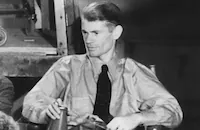
James Whale
Cast
John King

Richard Cromwell

Slim Summerville
Maurice Murphy
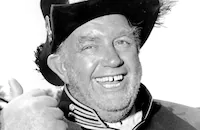
Andy Devine
Larry Blake
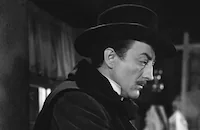
John Emery
Henry Hunter
Noah Beery Jr.
Gene Garrick
Barbara Read

Spring Byington
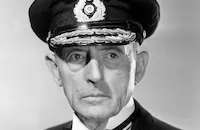
Frank Reicher
Marilyn Harris
Jean Rouverol

Etienne Girardot

Charles Halton

Laura Hope Crews

Louise Fazenda
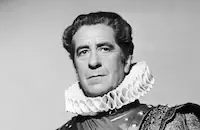
Robert Warwick
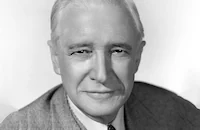
Samuel S. Hinds
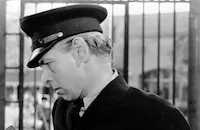
Arthur Hohl

William B. Davidson

Lionel Atwill
Al Shean
Clara Blandick
Robert Greig
Maidel Turner
Paul Weigel
Grace Goodall
Curt Von Fuerberg

Bess Flowers
Michael Fitzmaurice
Reginald Barlow
Edwin Maxwell

E. E. Clive

Edward Van Sloan
Francis Ford
Margaret Seddon
Greta Meyer

Dwight Frye
Otto Hoffman

Edward Mcwade
Harvey Clark
Dorothy Granger
Alice Ardell
Luppee Lupien
Carol Wines
Paul Irving
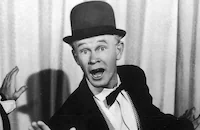
William Benedict
Margaret Armstrong
Harrison Greene
Helen Shipman
Tiny Sandford
Herbert Ashley
D'arcy Corrigan
Gaylord Pendleton

Harry Cording
Charles Bennett
Robert Adair
Harry C. Bradley
Robert Mckenzie
Edward Lesaint
Eddie Phillips
Russ Clark
Lane Chandler
Boyd Gilbert
June Gittelson
Delmar Watson
Harry Watson

Paul Panzer
Janet Elsie Clark
Henry Nordlinger
Buddy Roosevelt
Sidney D'albrook
Bert Sprotte
Tempe Pigott
Crew
Bernard B. Brown
George Daly
John P. Fulton
Edmund Grainger
Charles D. Hall
William Hedgcock
Ted Kent
Charles Kenyon
Joseph A. Mcdonough
John J. Mescall
Charles Previn
George Robinson
Charles R. Rogers
R. C. Sheriff
James Sullivan
Dimitri Tiomkin

Film Details
Technical Specs

Quotes
Trivia
Fearful that this film would not do well overseas, the new regime at Universal Pictures severely edited the film before release, removing much of the strongly anti-Nazi slant that author Erich Maria Remarque included in the original novel, and which director 'Whale, James' intended to retain in the film version.
Bowing to Nazi pressure, and "to cultivate the good will of Germany," Universal boss Charles R. Rogers took 'Whale, James' off the picture and ordered 21 cuts made to the film.
Notes
This film was the sequel to Universal's 1930 picture All Quiet on the Western Front, which starred Lew Ayres, Louis Wolheim and Slim Summerville and was directed by Lewis Milestone (AFI Catalog of Feature Films, 1921-30; F2.0094.) Summerville was the only actor to appear in the same role in both films. According to Hollywood Reporter, Jean Rogers was tested for one of the female lead roles in this film. New York Times lists James Whale as producer, as well as director. According to Box Office, German consul George Gyssling served a letter of warning to sixty actors and technicians connected with the making of this film, stating that if anything detrimental to German culture was to be found in the picture, not only would the film be banned from exhibition in that country, but the players appearing in it would also be banned from having their pictures exhibited from all past, present and future productions. A February 1937 Hollywood Reporter news item noted that "powderman George Daly was killed by an exploding bomb on the set" of the film. Modern sources add the following information about the production: The original budget was set at $770,000 with a nine-week shooting schedule. Heavy rains and other delays pushed the film over-schedule. When the production wrapped on 21 Apr, after 73 shooting days, the costs were well over one million dollars. After initial previews, twenty-one separate cuts were ordered to make the film more palatable to the German government. Writer Charles Kenyon was then ordered to interject the script with comedy scenes between Andy Devine and Summerville, which Whale found unsuitable. At that point, Whale left the project and was replaced by Edward Sloman, with Charles Maynard as the new editor. Despite these problems, the film was one of the top-grossing films of 1936-37. This film marked the motion picture debut of Broadway actor John Emery.












